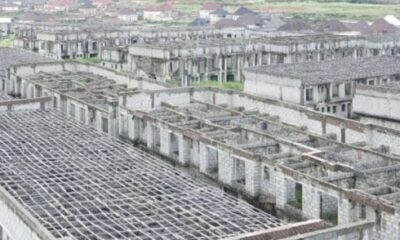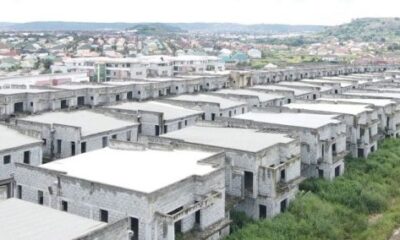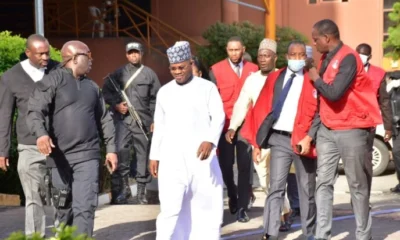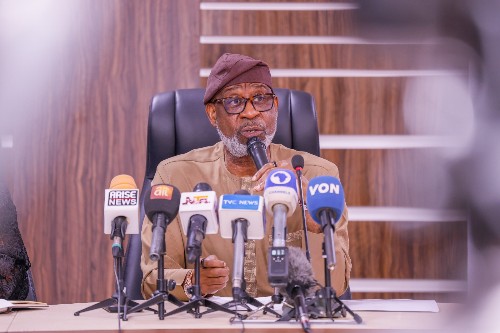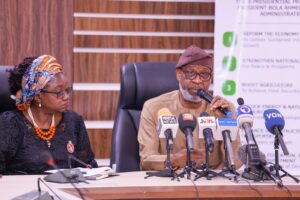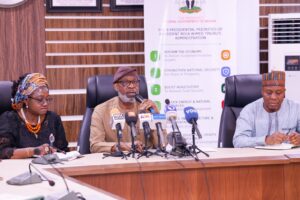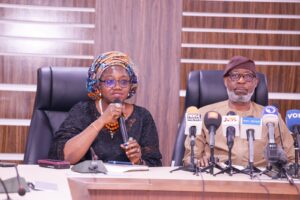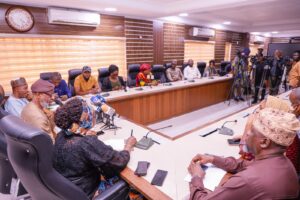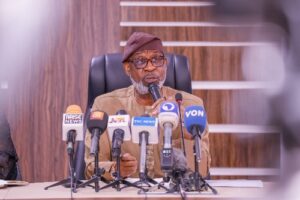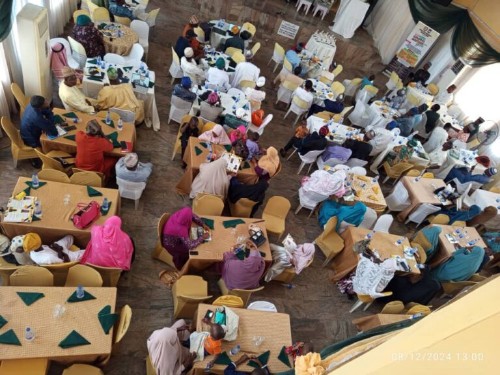The Economic and Financial Crimes Commission (EFCC) is moving closer to administering the lie detector test on detained Senator Shehu Sani and the Chairman/ CEO of ASD Motors, Alhaji Sani Dauda over the alleged $24,000 bribe allegation against the human rights activist.
Dauda is accusing Sani of extorting the money from him.
The lie detector test may be carried out after the planned interrogation of the businessman’s wife tomorrow.
Mrs Dauda is said to be central to what her husband went through and why the family opted to report the Senator to the anti-graft agency.
Also, the businessman is yet to accept alleged overtures to withdraw his petition against the Senator.
Sani’s alleged offence attracts a two-three-year jail term.
An investigation by our correspondent revealed that the EFCC is considering polygraph option because both the Senator and the businessman maintained parallel positions during their interrogations by detectives.
It was gathered that while the businessman insisted that. Sani extorted $24,000 from him, the embattled Senator said he only had car purchase transactions with ASD Motors.
According to a top source in the anti-graft commission, the most viable way to resolve the controversy is to subject the complainant and the accused person to a polygraph.
The source said: “Our investigators are interacting with Mrs. Dauda on Monday because she was said to be in the picture of certain things.
“The woman knew about how and when her husband decided to report Sen. Sani to the EFCC after the Senator became incommunicado.
“If after the session, Sen. Shehu Sani still denies collecting $24,000 from the businessman, they will undergo a lie detector test which will expose who is peddling falsehood.
“We may go to this length because we know this case is of public interest. Ordinarily, the EFCC has a petition from Dauda it has been working on and all the parties have made statements to warrant arraignment in court.
“We, however, want to make it a water-tight case and ensure equity with polygraph. It is a criminal offence for either of the two parties to lie on oath. Any of them will face a separate trial for falsehood.”
According to Wikipedia, “a polygraph, popularly referred to as a lie detector test, is a device or procedure that measures and records several physiological indicators such as blood pressure, pulse, respiration, and skin conductivity while a person is asked and answers a series of questions.”
Meanwhile, there were indications last night that Sen. Sani may earn a two or three-year jail term if found guilty of the allegation of extortion.
Another source said Section 18 of the EFCC (Establishment) Act 2004 is explicit on the jail term.
Section 18: (1) and (2) says: “A person who, without lawful authority (a) engages in the acquisition, possession or use of property knowing at the time of its acquisition, possession or use that such property was derived from any offence under this Act; or
(b) engages in the management, organization or financing of any of the offences under this Act; or
(c) engages in the conversion or transfer of property knowing that such property is derived from any offence under this Act; or
(d) engages in the concealment or disguise of the true nature, source, location, disposition, movement, rights, with respect to or ownership of property knowing such property is derived from any offence referred under this Act commits an offence under this Act and is liable on conviction to the penalties provided in Subsection (2) of this section.
(2) “The penalties provided for offences under subsection (1) of this section shall be imprisonment for a term not less than two years and not exceeding three years.”
Asked why the EFCC is not handing over Sen. Sani to the Nigeria Police, the source added: “This is a financial crime, it is within our mandate.
“The Commission is also charged with the responsibility of enforcing the provisions of – (a) the Money Laundering Act 2004; 2003 No.7 1995 N0. 13 (b) the Advance Fee Fraud and Other Fraud Related Offences Act 1995; (c) the Failed Banks (Recovery of Debts) and Financial Malpractices in Banks Act 1994, as amended; (d) The Banks and other Financial Institutions Act 1991, as amended; and (e) Miscellaneous Offences Act (f) Any other law or regulations relating to economic and financial crimes, including the Criminal code or Penal Code.”

 BIG STORY5 days ago
BIG STORY5 days ago
 BIG STORY3 days ago
BIG STORY3 days ago
 BIG STORY3 days ago
BIG STORY3 days ago
 BIG STORY4 days ago
BIG STORY4 days ago
 BIG STORY5 days ago
BIG STORY5 days ago
 BIG STORY4 days ago
BIG STORY4 days ago
 BIG STORY4 days ago
BIG STORY4 days ago
 BIG STORY3 days ago
BIG STORY3 days ago











